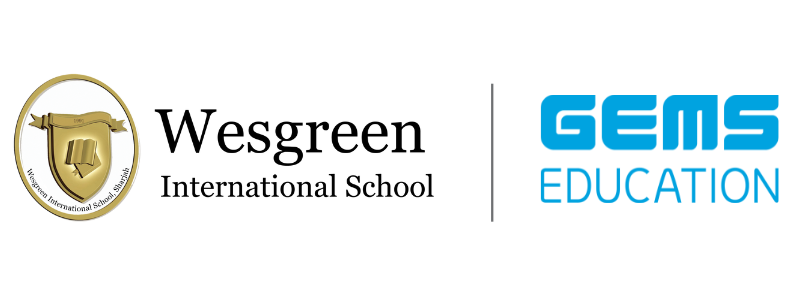FS2 - COMMUNICATION AND LANGUAGE COURSE SYLLABUS
Course Outline
Overview
Communication and Language comes under the prime area of the Early Years Foundation Stage. The CL syllabus at GEMS Wesgreen International Primary School aims to support students to develop their reading and writing skills, the skills support language learning and include the ability to discriminate sounds and maintain and monitor attention in a shared context. It also develops the ability to understand words in context, beginning with single words and building on this with phrases and more and more complex sentences. Students learn to express their feelings, needs and wants, their thoughts and ideas and be able to talk about what has happened and about creative or imaginative events.
Learning Outcomes
The aims of all subjects state what a teacher may expect to teach and what a student may expect to experience and learn. These aims suggest how the student may be changed by the learning experience.
The aims of the CL Syllabus are to encourage and enable students to:
- Develop listening and attention skills
- Answer and ask questions
- Stick to main theme, topic and discussion
- Talk about our classroom environment
- Discus a variety of books with a school theme
- Express likes and dislikes
- Encourage signing along with using speech
- Maintain attention, concentrates and sits quietly during appropriate activity
- Able to follow a story without pictures or props
- Introduce a storyline or narrative into their play
- Listen and responds to ideas expressed by others in conversation or discussion
- Extend vocabulary, especially by grouping and naming, exploring the meaning and sounds of new words
- Use language to imagine and recreate roles and experiences in play situations
- Link statements and sticks to a main theme or intention.
- Use talk to organise, sequence and clarify thinking, ideas, feelings and events
- Listen attentively in a range of situations. They listen to stories, accurately anticipating key events and respond to what they hear with relevant comments
- Able to follow a story without pictures or props
- Listen and responds to ideas expressed by others in conversation or discussion
- Follow instructions involving several ideas or actions
- Uses talk to organise, sequence and clarify thinking, ideas, feelings and events
- Introduces a storyline or narrative into their play
Ongoing Objectives
There are objectives that are covered and built upon throughout the year during daily
Speaking
- Most words are clear and intelligible some sounds : r, j, th, ch, and sh - multisyllabic words such as ‘pterodactyl’, ‘planetarium’ or ‘hippopotamus’ may still be problematic Use longer sentences of at least four or six words.
- Use talk to organise themselves and their play: “Let’s go on a bus... you sit there... I’ll be the driver.”
- Ask questions to find out more about topics that interest them in a arrange of situations, books, activities, items
- Ask questions to check they understand what has been said to them
- Articulate their ideas and thoughts in well-formed sentences.
- Uses language to imagine and recreate roles and experiences in play situations
- Links statements and sticks to a main theme or intention
- Uses talk to organise, sequence and clarify thinking, ideas, feelings and events
Listening and Attention
- Listens to others in one-to-one or small groups, when conversation interests them children may contributes by adding statements
- Responds to instructions with more elements, e.g. Give the big ball to me; collect up all the blocks and put them in the box
- Listens to familiar stories with increasing attention and recall much of what happens (may be non sequential or prompts needed)
- Is beginning to display active listening skills ie looking at the speaker and not talking at the same time.
- Can identify why it is important to listen in a range of circumstances i.e. I am listening so I can stay safe, I like to listen to the story so I can find out what happens, I am listening to find out what happens to the wax crayon when it is left in the sunshine. I am listening so that I can hear what the grownup is saying and do the right thing
- Beginning to understand humour, knows if something is funny, laughs more appropriately e.g. nonsense rhymes, jokes
- Listens and responds to ideas expressed by others in conversation or discussion.
- Uses who; why; when; where and how with growing accuracy and to check they understand
Assessment
Formative: Throughout the units, the children will be observed daily during their focus and continuous provision activities. The observations will help inform next steps and planning.
Summative: At the end of each term we complete internal and standardized tests. This allows us to measure the students’ progress throughout the term and year. At the end of the academic year, the students complete the EYFS profile.


